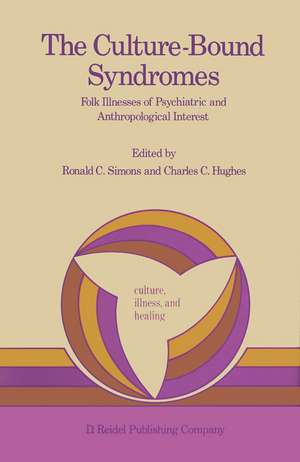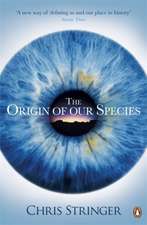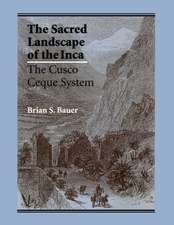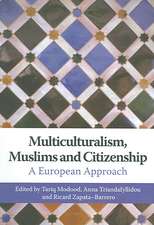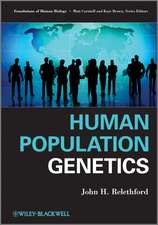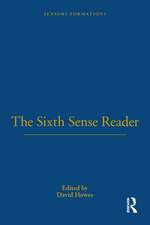The Culture-Bound Syndromes: Folk Illnesses of Psychiatric and Anthropological Interest: Culture, Illness and Healing, cartea 7
Editat de Ronald C. Simons, C.C. Hughesen Limba Engleză Hardback – 30 sep 1985
| Toate formatele și edițiile | Preț | Express |
|---|---|---|
| Paperback (1) | 1228.15 lei 6-8 săpt. | |
| SPRINGER NETHERLANDS – 30 sep 1985 | 1228.15 lei 6-8 săpt. | |
| Hardback (1) | 1234.32 lei 6-8 săpt. | |
| SPRINGER NETHERLANDS – 30 sep 1985 | 1234.32 lei 6-8 săpt. |
Din seria Culture, Illness and Healing
- 5%
 Preț: 367.14 lei
Preț: 367.14 lei - 18%
 Preț: 1216.16 lei
Preț: 1216.16 lei - 5%
 Preț: 1424.31 lei
Preț: 1424.31 lei - 18%
 Preț: 1394.21 lei
Preț: 1394.21 lei - 18%
 Preț: 1235.88 lei
Preț: 1235.88 lei - 18%
 Preț: 1225.16 lei
Preț: 1225.16 lei - 18%
 Preț: 1224.36 lei
Preț: 1224.36 lei - 18%
 Preț: 1224.85 lei
Preț: 1224.85 lei - 18%
 Preț: 1231.47 lei
Preț: 1231.47 lei - 15%
 Preț: 642.18 lei
Preț: 642.18 lei - 18%
 Preț: 950.96 lei
Preț: 950.96 lei - 18%
 Preț: 1223.88 lei
Preț: 1223.88 lei - 18%
 Preț: 1226.24 lei
Preț: 1226.24 lei -
 Preț: 392.60 lei
Preț: 392.60 lei - 15%
 Preț: 643.65 lei
Preț: 643.65 lei
Preț: 1234.32 lei
Preț vechi: 1505.26 lei
-18% Nou
Puncte Express: 1851
Preț estimativ în valută:
236.18€ • 247.92$ • 196.04£
236.18€ • 247.92$ • 196.04£
Carte tipărită la comandă
Livrare economică 10-24 aprilie
Preluare comenzi: 021 569.72.76
Specificații
ISBN-13: 9789027718587
ISBN-10: 902771858X
Pagini: 536
Ilustrații: XVI, 518 p.
Dimensiuni: 155 x 235 x 34 mm
Greutate: 0.92 kg
Ediția:1985
Editura: SPRINGER NETHERLANDS
Colecția Springer
Seria Culture, Illness and Healing
Locul publicării:Dordrecht, Netherlands
ISBN-10: 902771858X
Pagini: 536
Ilustrații: XVI, 518 p.
Dimensiuni: 155 x 235 x 34 mm
Greutate: 0.92 kg
Ediția:1985
Editura: SPRINGER NETHERLANDS
Colecția Springer
Seria Culture, Illness and Healing
Locul publicării:Dordrecht, Netherlands
Public țintă
ResearchCuprins
Culture-Bound or Construct-Bound? The Syndromes and DSM-III.- Sorting the Culture-Bound Syndromes.- I: Folk Illnesses of Psychiatric Interest in which some Evidence Supports the Hypothesis of a Neurophysiological Shaping Factor.- A. The Startle Matching Taxon.- The Resolution of the Latah Paradox.- Paradox Lost: The Latah Problem Revisited.- Latah II — Problems with a Purely Symbolic Interpretation: A Reply to Michael G. Kenny.- Shamans and Imu: Among Two Ainu Groups — Toward a Cross-Cultural Model of Interpretation.- Commentary.- B. The Sleep Paralysis Taxon.- Uqamairineq and Uqumanigianiq: Eskimo Sleep Paralysis.- The Old Hag Phenomenon as Sleep Paralysis: A Biocultural Interpretation.- Commentary.- II: Folk Illnesses of Psychiatric Interest in which a Neurophysiological Shaping Factor is only Suspected.- A. The Genital Retraction Taxon.- Koro — A Cultural Disease.- Koro in a Nigerian Male Patient: A Case Report.- The Koro Pattern of Depersonalization in an American Schizophrenic Patient.- Indigenous Koro, A Genital Retraction Syndrome of Insular Southeast Asia: A Critical Review.- Commentary.- B. The Sudden Mass Assault Taxon.- Ethno-Behaviorism and the Culture-Bound Syndromes: The Case of Amok.- Sudden Mass Assault with Grenade: An Epidemic Amok Form from Laos.- The Amok Syndrome in Papua and New Guinea.- Amok.- Commentary.- C. The Running Taxon.- Pibloktoq (Hysteria) Among the Polar Eskimo: An Ethnopsychiatric Study.- Grisi Siknis in Miskito Culture.- The Transformation of Arctic Hysteria.- Commentary.- III: Folk Illnesses Usually Listed as Culture-Bound Psychiatric Syndromes which should Probably No Longer be so Considered.- A. The Fright Illness Taxon.- The Folk Illness Called Susto.- Saladera — A Culture-Bound Misfortune Syndrome in the Peruvian Amazon.-Lanti, Illness by Fright Among Bisayan Filipinos.- Mogo Laya, A New Guinea Fright Illness.- Commentary.- B. The Cannibal Compulsion Taxon.- Windigo Psychosis: The Anatomy of an Emic-Etic Confusion.- Commentaries and Replies.- Commentary.- Append.- Glossary of ‘Culture-Bound’ or Folk Psychiatric Syndromes.- Charles C. Hughes.- List of Contributors.- to the Index.
Recenzii
`... admirable and essential book. It moves this vexing subject (Culture-Bound Syndromes) to a more fruitful plane of conceptualization and investigation and constitutes a vital contribution to transcultural psychiatry and medical anthropology.'
Social Science and Medicine.
`... the essential basis for any future work in cultural psychiatry or, indeed, any attempt at a taxonomy of Western neurosis. it is the `Book of the Year' for comparative psychiatristis.'
Psychological Medicine (1987)
`This is the first book to examine the concept of culturebound syndromes in a comprehensive manner. It raises important questions about the cultural shaping of all our psychiatric categories of mental illness. This is a major contribution to our understanding of diagnosis in psychiatry.'
Prof. Armando R. Favazza
`This book provides detailed descriptions and discussions of several of the most important of these syndromes. It also provides the best-to-date discussions of the difficulties of fitting the culture-bound syndromes into present nosological categories. The book has the notable advantage of the firm editorship of a psychiatrist and an anthropologist, both of whom have full familiarity with the other's field. The result is a brilliant course between Scylla and Charybdis. With the help of this book and with DSM-III as a culture-bound but innovative model, ICD-10 might well attain truly inernational coverage; those concerned with psychiatric disorders around the world could find that at last they have a classification which approaches relevance to all of their societies and all of their patients.'
R. Prince, M.D., Editor of the Transcultural Psychiatric Research Review
`This important book develops approaches as to whether any specific terms refers to a particular behaviour pattern, to local exegesis or to variants to more universal patterns - and more importantly, what the criteria are by which we can make such a decision. It is essential reading for all mental health workers, psychiatristis, psychologists and social workers, who are concerned with a relationship between psychopathology and culture, and also for social anthropologists concerned with the meanings which cultures ascribe to the natural world.'
Roland Littlewood, Senior Lecturer in Psychiatry, The University of Birmingham and The Institute of Social Anthropology, Oxford University
`... provide the essential basis for any future work in cultural psychiatry or, indeed, any attempt at a taxonomy of Western neurosis. It is the `Book of the Year' for comparative psychiatrists.'
Psychological Medicine, 17 (1987)
`This is an important contribution and should be worthwhile for medical antrhopologists as well as students of psychiatry, psychology, and culture in general.'
The Journal of Nervous and Mental Disease, 174:9 (1986)
`This important contribution to the study of the culturebound syndromes serves to highlights not only areas of mutual interest to researchers in various disciplines but also the several dilemmas that make further advancement in the study of these syndromes problematic.'
Roberta Hall, Oregon State University
`Simons and Hughes have produced a very worthwhile book on this subject, by far the most extensive to date.'
American Anthropologist, 89 (1987)
`...highly recommended to the serious researcher or student in the field.'
Contemporary Psychology
Social Science and Medicine.
`... the essential basis for any future work in cultural psychiatry or, indeed, any attempt at a taxonomy of Western neurosis. it is the `Book of the Year' for comparative psychiatristis.'
Psychological Medicine (1987)
`This is the first book to examine the concept of culturebound syndromes in a comprehensive manner. It raises important questions about the cultural shaping of all our psychiatric categories of mental illness. This is a major contribution to our understanding of diagnosis in psychiatry.'
Prof. Armando R. Favazza
`This book provides detailed descriptions and discussions of several of the most important of these syndromes. It also provides the best-to-date discussions of the difficulties of fitting the culture-bound syndromes into present nosological categories. The book has the notable advantage of the firm editorship of a psychiatrist and an anthropologist, both of whom have full familiarity with the other's field. The result is a brilliant course between Scylla and Charybdis. With the help of this book and with DSM-III as a culture-bound but innovative model, ICD-10 might well attain truly inernational coverage; those concerned with psychiatric disorders around the world could find that at last they have a classification which approaches relevance to all of their societies and all of their patients.'
R. Prince, M.D., Editor of the Transcultural Psychiatric Research Review
`This important book develops approaches as to whether any specific terms refers to a particular behaviour pattern, to local exegesis or to variants to more universal patterns - and more importantly, what the criteria are by which we can make such a decision. It is essential reading for all mental health workers, psychiatristis, psychologists and social workers, who are concerned with a relationship between psychopathology and culture, and also for social anthropologists concerned with the meanings which cultures ascribe to the natural world.'
Roland Littlewood, Senior Lecturer in Psychiatry, The University of Birmingham and The Institute of Social Anthropology, Oxford University
`... provide the essential basis for any future work in cultural psychiatry or, indeed, any attempt at a taxonomy of Western neurosis. It is the `Book of the Year' for comparative psychiatrists.'
Psychological Medicine, 17 (1987)
`This is an important contribution and should be worthwhile for medical antrhopologists as well as students of psychiatry, psychology, and culture in general.'
The Journal of Nervous and Mental Disease, 174:9 (1986)
`This important contribution to the study of the culturebound syndromes serves to highlights not only areas of mutual interest to researchers in various disciplines but also the several dilemmas that make further advancement in the study of these syndromes problematic.'
Roberta Hall, Oregon State University
`Simons and Hughes have produced a very worthwhile book on this subject, by far the most extensive to date.'
American Anthropologist, 89 (1987)
`...highly recommended to the serious researcher or student in the field.'
Contemporary Psychology
